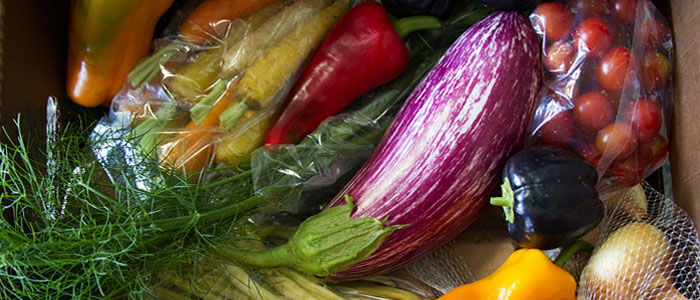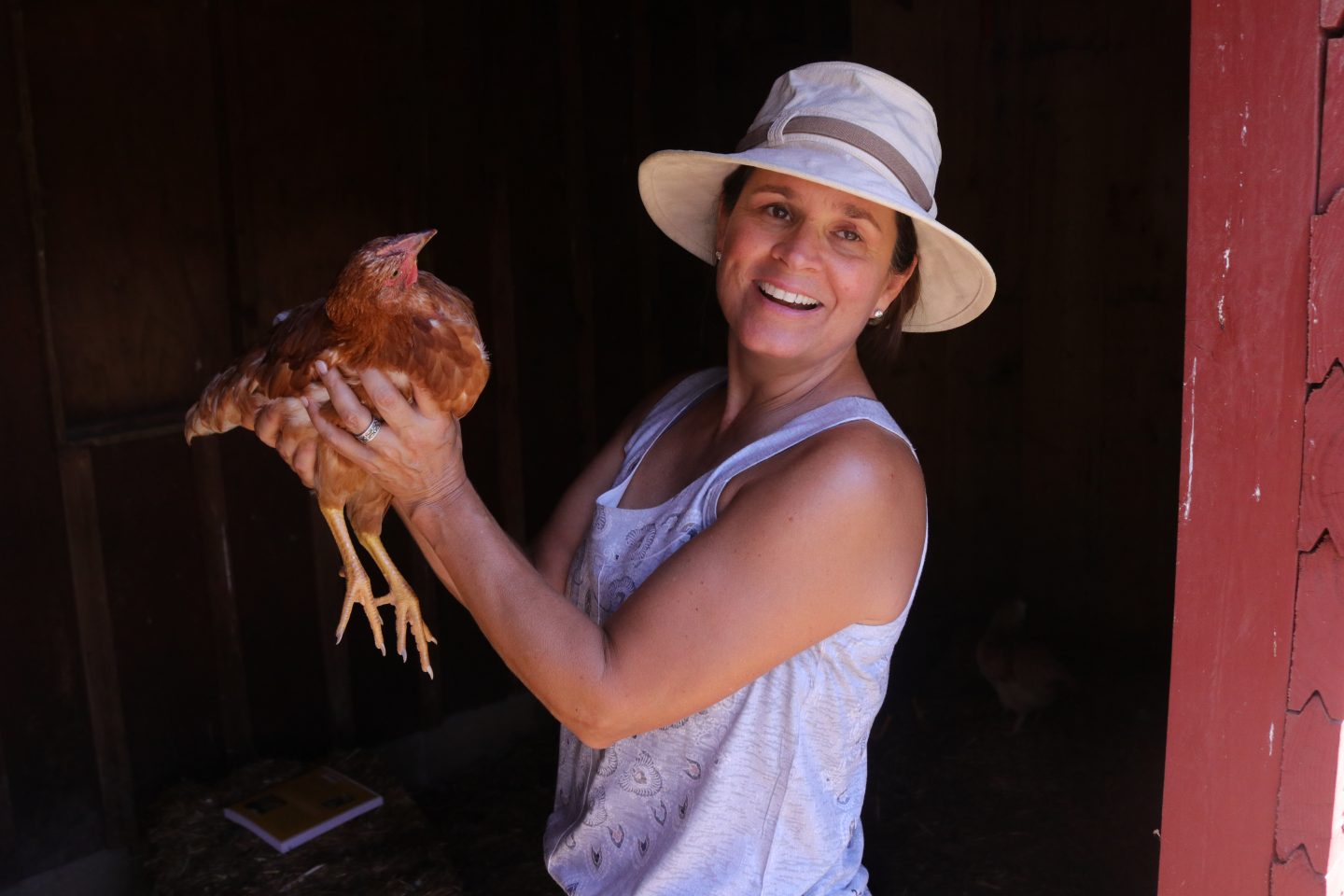What does it mean to keep kosher?
Beyond chicken soup for the soul, is there a more Jewish way to eat?
How are we meant to eat?
What is food justice?
What is our Jewish responsibility to the environment?
Given the centrality of food to Jewish life, these are but a few of the questions Allison Gutman now explores with families in her role as Assistant Director of Education and Youth at Congregation Shaarey Zedek (CSZ). A Michigan native and graduate of the William Davidson Graduate School of Jewish Education at the Jewish Theological Seminary, Allison returned to metro Detroit from Needham, Massachusetts, in 2013, with her husband, Brian, an attorney and their toddler, David, now 2 years old.
A committed “Jewish” vegetarian, Allison is a strong advocate of “eco-kashrut” – that is, the extension of Jewish dietary laws to reflect modern environmental and social issues and to embrace the trend to eat food that has been sustainably produced and locally sourced. In her work at Shaarey Zedek, Allison has found the perfect opportunity to combine her passion for teaching with her Jewish spiritual perspective on food.
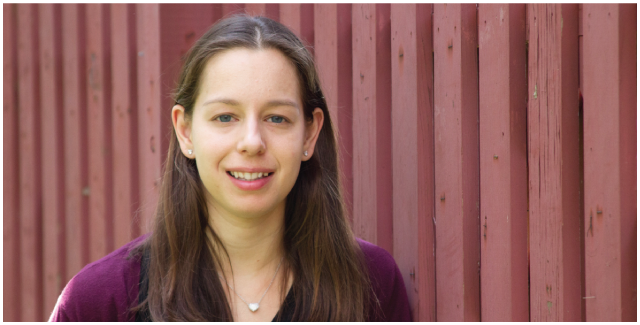 |
Allison Gutman, Assistant Director of Education and Youth at Congregation Shaarey Zedek
Nourishing families
“I think a lot of people connect with Judaism through Jewish food,” she observes. With so many new parenting classes cropping up in the community – including Federation’s JBaby and JFamily, and in my own series of cooking classes for parents and ‘Kids in the Kitchen’ — Jewish parents are becoming more health conscientious and discerning about the foods their families are eating. My question when I first came to the congregation was why not do more with the teaching moments we have: to nourish our families as well as to educate them?”
With the goal to encourage, if not inspire healthier, more eco-friendly and sustainable choices, Allison had embraced the concepts of eco-kashrut in the CSZ religious school, youth programs and parenting classes. “The tenets of kashrut are a standard part of the curriculum,” she explains, “but in the seventh grade we start looking at food through a social justice lens. Think about it: when the laws of kashrut were established by our ancestors, everyone ate local, because going to the corner store to buy bananas was not an option.”
Describing food justice, Allison continues, “Food justice means our responsibility to the environment and to the farmers who grow our food. When we talk about food justice, we mean respect for the natural cycles of sustainable local agriculture, how it connects us to the land, to our community, and to Israel – particularly this year during Israel’s sabbatical (shmita) year – where farmers give rest to the land and neither harvest, nor sell their produce. Food justice means the decisions we make in feeding our families every day, as well as the actions we take to engage in the fight against hunger by donating our extra food to Mazon — to those in need. It’s a positive-sum game, and together we learn that joyful and communal eating – and sharing our surplus — is a part of healthy living and growing.”
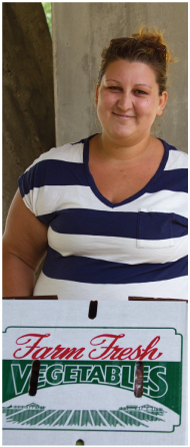 |
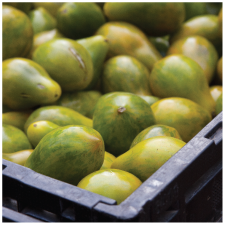 |
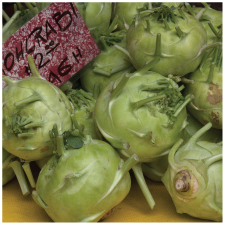 |
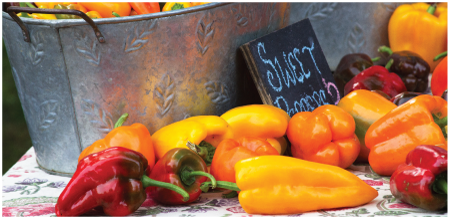 |
||
From farm to table
‘Farm to table’ may be the buzzword in the restaurant business, but the closer you get to fresh-picked food straight from the source, the better. Taking a leap of faith with local farms to bring fresh produce to folks in the burbs, Allison launched Hazorim CSA at CSZ. CSA stands for Community Supported Agriculture. Hazorim is the Hebrew word for “harvester.”
A Michigan first, Hazorim CSA was launched in partnership and under the guidance of Hazon, a national organization promoting healthier and more sustainable Jewish communities worldwide. Essentially, the program at Shaarey Zedek works to provide residents in the community direct access to high quality, fresh produce grown by local farmers committed to organic practices.
Nigel Savage, the founder and director of Hazon, offers a strong endorsement of the program, commenting, “The work that Allison is leading at Shaarey Zedek is at the front edge of Jewish life in this country. Too frequently people think that we must make choices between – for instance – strengthening Jewish life, on the one hand, and trying to make a better world for others, on the other. Launching a CSA demonstrates that, actually, these two things go hand-in-hand. Kudos to Allison Gutman for leading this initiative and to the congregation for supporting it.”
Offering a rabbinic perspective, Rabbi Aaron Starr of Shaarey Zedek added, “In the Talmud we learn that the kitchen table is the mikdash m’at: the little sanctuary, where we connect to God, Torah and the Jewish people. Through Allison’s leadership, Shaarey Zedek families can make sure that the Jewish values they hold dear — both traditional and modern — can appear in the sacred space that is the kitchen.”
How CSA works
Currently, members of Hazorim CSA purchase “shares” of crops from two farms. The summer share arrives twice a month, on Tuesdays, from Country Route, a small family-run farm in Riley Township, 55 miles northeast of Southfield. For their winter share, November through April, the congregation works with Brines Family farm in Dexter, Michigan. Produce is picked at peak ripeness, then flash frozen, vacuum-sealed, stored and distributed by Locavorious in Ann Arbor.
Typically, a share feeds an average family of two adults and two children, or two exclusively vegetarian adults who enjoy cooking with fresh produce. Representing summer produce at the peak of perfection, an August delivery included a luscious variety of organic vegetables including juicy ripe tomatoes, carrots, sweet peppers and jalapeno peppers, tomatillos, cucumbers, fennel, corn, squash, eggplant, mushrooms, okra, onion, garlic and sweet peas.
 |
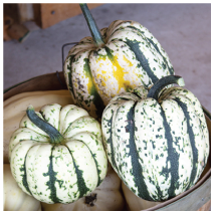 |
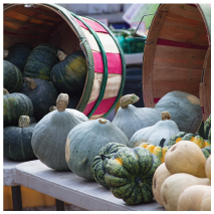 |
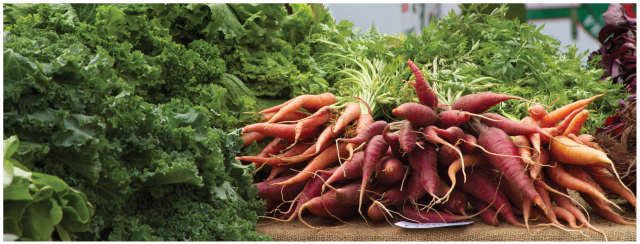 |
||
Jewish in nature
With each delivery, Allison prepares a newsletter offering recipes and tips on how to prepare the produce, freeze it or pickle it. “We see ourselves as providing a vital service to our families,” she says. “We started small – with just 15 families this year, but our vision is universal, based on the national model, curriculum and training of Hazon – whose mission is to create sustainable communities in the Jewish world and beyond.”
A side benefit of Hazorim CSA has been outreach. Registration for the program is online and open to Shaarey Zedek congregants and non-members alike. Unlike so many other programs which are targeted to individual groups, Community Supported Agriculture bridges the gap between all ages and stages of life, serving everyone from young families to empty nesters.
Taking root
According to Allison, it’s only a matter of time before Community Supported Agriculture grows from a novelty to a staple for many more families in metro Detroit. As individuals and other congregations express interest in buying into the concept, there’s little doubt that the program will double, even triple in capacity next year. “Because we all eat, we all connect with food. The question remains: how are we meant to eat? I think CSA is going to be a big aha moment for us Jewishly and the next big thing to hit Detroit.”
To learn more about CSA at CSZ, visit or contact Allison Gutman at agutman@shaareyzedek.org
A Recipe for Sukkot: Savory Winter Squash Soup
Ingredients
- 2 tablespoons unsalted butter
- 1 tablespoon good olive oil
- 2 cups chopped yellow onions (2 onions)
- 1 (15-ounce) can pumpkin puree (not pumpkin pie filling)
- 1 1/2 pounds butternut squash, peeled and cut in chunks
- 3 cups of vegetable stock
- 2 teaspoons kosher salt
- 1/2 teaspoon freshly ground black pepper
- 1 cup half-and-half (almond milk for vegans)
- Grated Gruyere, or croutons for serving optional garnishes
Directions
Heat the butter and oil in a stockpot, add the onions, and cook over medium – low heat for 10 minutes, or until translucent.
Add the pumpkin puree, butternut squash, vegetable stock, salt, and pepper. Cover and simmer over medium – low heat for about 20 minutes, until the butternut squash is very tender.
In a food processor blend the mixture. Return to the pot, add the half-and-half, and heat slowly. If the soup needs more flavor, add another teaspoon of salt. Serve hot with garnishes, if desired.
To serve with croutons, remove the crusts from 2 slices bread, cut them in 1/2-inch cubes and saute them in 1 tablespoon of butter until browned. Season with salt and pepper.

